Richard Michael "Kip" Carpenter was an English screenwriter, author and actor. He created a number of British television series, including Robin of Sherwood and Catweazle.
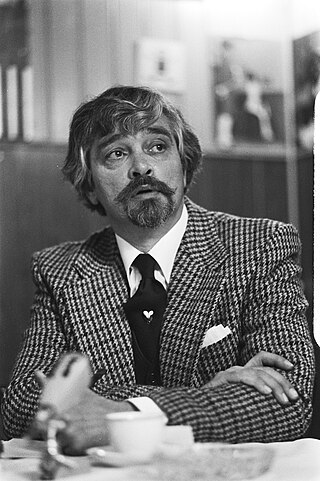
Rien Poortvliet was a Dutch artist and illustrator.

George Wilhelm Kettmann or George Kettmann Jr. was a Dutch poet, writer, journalist and publisher who promoted Nazism in the Netherlands. With his wife, he founded the best known Dutch Nazi publishing house, De Amsterdamsche Keurkamer. Until 1941 he was editor in chief of Volk en Vaderland, the weekly journal of the National Socialist Movement in the Netherlands (NSB), the movement of Anton Mussert.

Uitgeverij Lannoo Groep is a Belgian publishing group, based in Tielt, with assets in Belgium and the Netherlands. Its Belgian subsidiary is Uitgeverij Lannoo. Its Dutch subsidiary is LannooMeulenhoff. Over the years Lannoo evolved from Catholic and Flemish to an open, commercial publishing house.

Mathilda (Til) Brugman was a Dutch author, poet, translator, and linguist.

Antonia "Tonke" Johanna Willemina Dragt is a Dutch writer and illustrator of children's literature. Her book De brief voor de koning was chosen by CPNB as the best Dutch youth book of the latter half of the twentieth century.

Willem Arnoldus Witsen was a Dutch painter and photographer associated with the Amsterdam Impressionism movement.
Jona Eliëser Joseph Oberski is a Dutch writer and a nuclear physicist.

Van de koele meren des doods is a Dutch novel by Frederik van Eeden, first published in 1900. It is one of the canonical Dutch novels, and is praised for its representation of the female protagonist; the novel established van Eeden as a "master of the psychological novel." A 1982 movie was based on the novel.
The Nana Maru (南阿丸) was a Japanese cargo ship from the Seia Maru-class, which was sunk in military service by ML-KNIL Brewsters during World War II. It was part of the 11th Air Fleet.

Klaziena "Ina" Boudier-Bakker was a Dutch novelist. Her most famous work is De klop op de deur, written in 1930.
Theodore James van Houten was a Dutch-British writer, journalist, columnist, radio-theatre producer, critic, and translator.
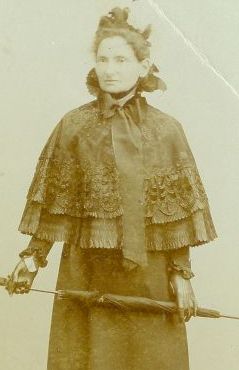
Amy Geertruida de Leeuw, known by the pen name Geertruida Carelsen, was a Dutch author and journalist.
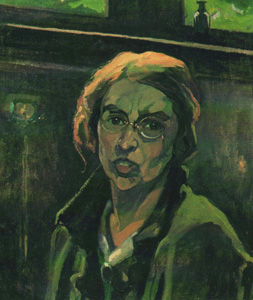
Adriana "Adri" Jacoba Pieck (1894–1982) was a Dutch artist.
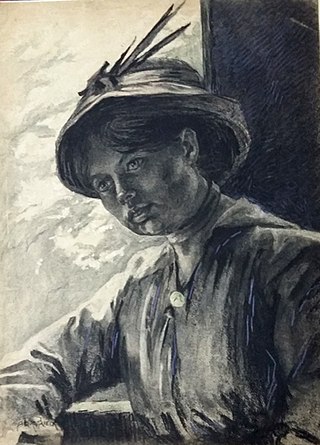
Margaretha "Gretha" Pieck (1898-1920) was a Dutch artist.
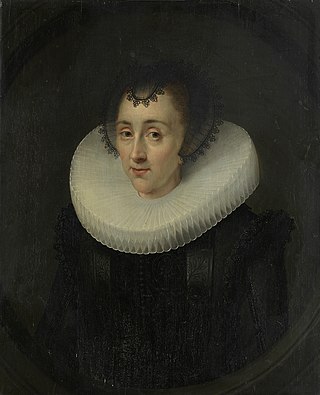
Hortensia del Prado was a Dutch noblewoman and horticulturalist whose garden in Middelburg was featured by the poet Jacob Cats.
Marianne Philips was a Dutch writer and politician. In 1919, she became one of the first female municipal council members of the Netherlands. Philips wrote psychological novels. Philips survived World War II by going into hiding. In 1950, De zaak Beukenoot was selected as the gift for Boekenweek, a week dedicated to Dutch literature.
Maria Elizabeth van Ebbenhorst Tengbergen was a Dutch composer, lyricist, organist, and teacher.

The Boelens and Boelens Loen were a Dutch patrician family of Amsterdam. The family figured in the city's government lists between the years 1360 and 1680. They were considered to be quite an influential Amsterdam family in their time and were intensely involved in the history of their hometown. Between 1495 and 1538 the oligarchy of the so-called Boelen-Heijnen clan was at the forefront of the Amsterdam city government.
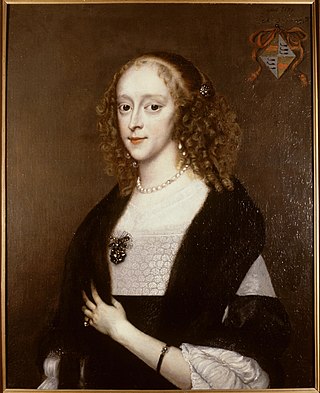
Wendela Bicker was the wife of Johan de Witt. She was one of the richest young female commoners of her time and she married one of the most influential republican politicians in the Netherlands. She was in the public eye during her lifetime and entered history books thereafter. This is facilitated by the letters and the housekeeping books she left behind. The narrative about her life reflects how the role of women in the Netherlands in the 17th century was and is understood.













